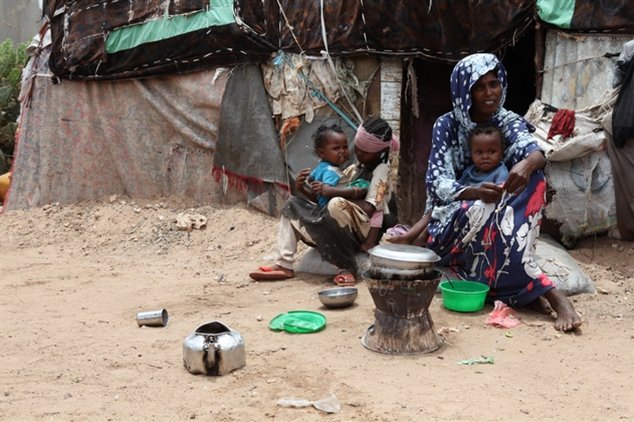Aid agencies working on life-saving health and nutrition programmes in Somalia welcome significant new funding from the UK Department for International Development (DfID), which has been made available in recent days.
The £15 million ($18.25m) committed by DfID will be immediately invested in supporting a consortium of 9 charities – among which Cesvi – to scale up access to health and nutrition services across the country, as fears of a potential famine grow.
The money comes as the lives of hundreds of thousands of Somali children are at risk, with more than 360,000 children expected to require treatment for acute malnutrition.
There is also growing concern about the increase in the number of cases of cholera and Acute Watery Diarrhoea cases across the country, as clean water sources dry up and pastoralists move into IDP camps.
The new grants will allow the NGOs to reach almost 400,000 people with essential health services and over 150,000 malnourished children and mothers with life-saving nutrition, in 17 out of 18 regions across Somalia/Somaliland.
The reinforcement of intervention in the country concerns Cesvi too: our organization is committed in the area with projects aimed to guarantee food security and to strengthen the population resilience’s capacity; in addition, it carries on health and nutrition interventions addressed to the most vulnerable. The new funds will help us accelerating the humanitarian response to the devastating impact of the drought.
Chris Golden, Consortium Manager for the health and nutrition consortium of NGOs, says: “DFID’s announcement of £15 million is a major investment that will save thousands of lives in Somalia. With the UK government’s support, we can immediately ramp up life-saving treatment of diseases; treat children suffering from acute malnutrition and reduce the risk of death among communities in one of the world’s most urgent humanitarian crises”.
Nine charities will work together to provide a combined package of vital health and nutrition support to communities on the frontline of the crisis and builds on substantial investment by DFID to date in strengthening the health and nutrition sector in Somalia/Somaliland.
In the next six months, aid agencies will work with officials from the Ministry of Health to treat children for common diseases like diarrhoea, pneumonia and malaria – the ‘killer diseases’ for children if left untreated – in six regions where communities are in urgent need of assistance including Banadir, Bay, Galgaduud, Hiraan, Lower Shabelle and Mudug, with much of the screening and tracing of children at need being carried out by locally active Community Health Workers.
Aid workers will be sent out to rural locations to screen children and identify cases of acute malnutrition. Children who have acute, severe and moderately acute malnutrition will be referred for treatment to Primary Health Units and mobile heath teams for immediate treatment. Children who need treatment for medical complications will be taken to hospitals for treatment.
Cover Photo: Fulvio Zubiani
